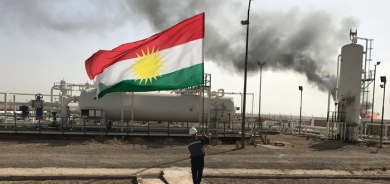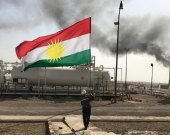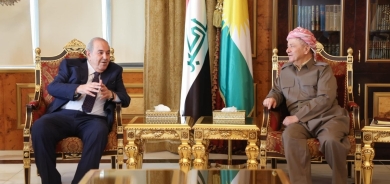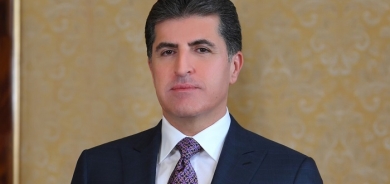Yemen: The battle for Marib

After a period of relative calm, the Houthis launched a fierce offensive in February to take the city from the government, which is backed by a Saudi-led military coalition.
Hundreds of combatants have been killed in the fighting.
Offensive Starts
Rebels relaunch their offensive on Marib on February 8, after government officials say they are boosted by reinforcements.
The offensive comes as the administration of US President Joe Biden ends support for Saudi Arabia's military operations and withdraws the Houthis from the US blacklist of terrorist organizations.
'Millions in Danger'
US special envoy Tim Lenderking on February 16 urges the rebels to end their advance, saying the offensive could push Yemen's already fragile infrastructure to the "breaking point."
"An assault on the city would put two million civilians at risk, with hundreds of thousands potentially forced to flee," says Mark Lowcock, the UN undersecretary general for humanitarian affairs.
Fighting Rages
On February 20 the government camp accuses the rebels of using civilians as human shields. Six days later more than 60 fighters are killed in the Marib province.
Government sources say the Saudi coalition has carried out airstrikes to halt the rebel advance.
Fighting on February 27 leaves 22 government soldiers, including the special forces commander in Marib, and more than 28 rebels dead.
Escalation
US Secretary of State Antony Blinken on March 1 urges rebels to halt their offensive, saying that "aid alone will not end the conflict."
On March 5-6 at least 90 fighters are killed, including 32 on the government side.
The rebels on March 17 say a precondition for a ceasefire must include an end to the air and maritime blockade imposed by Saudi Arabia.
The next day the UN Security Council condemns the "escalation" in fighting.
Rebel Advance
The rebels on March 19 take control of the strategic Mount Hilan overlooking Marib city, after fighting which leaves dozens of dead and wounded on both sides.
The same day the rebels claim a drone attack on a Riyadh oil refinery, the second major attack since early March against Saudi energy installations.
The coalition carries out airstrikes the next day, the official Saudi news agency SPA reports.
Fighting Intensifies
Riyadh on March 22 proposes a global UN-supervized ceasefire, a proposal the Houthis immediately reject.
Seventy fighters are killed in 24 hours around Marib city, two government officials say on April 12.
On April 15 UN envoy Martin Griffiths, urges "the parties to seize the opportunity that exists now and negotiate in good faith without preconditions."
Military sources say a day later that 96 combatants have been killed near Marib city over the past 48 hours.
AFP















